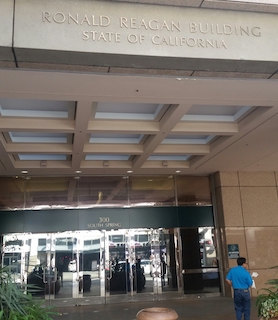Trammel Ray Jones was tried and convicted in the Torrance Superior Court of one count of second degree murder (Penal Code § 187(a)), as well as two counts of attempted willful premediated, and deliberate murder (§§ 664, 187(a)), with true findings on related firearm enhancements (§ 12022.53(c), (d), and (e)(1)) and gang enhancement (§ 186.22(b)(1)).
Mr. Jones was sixteen years old at the time and tried as an adult. Two people died in the shooting near 110th Street and Budlong in Los Angeles. Mr. Jones was sentenced to 80 years to life in prison.
Mr. Jones appealed the verdict and his sentence on several grounds. This article will only discuss his argument that the prosecutor’s excusal of three African-American prospective jurors violated
(1986) 476 U.S. 79
(1978) 22 Cal. 3d 258.
It is important to understand the factual and legal background for this ground for appeal. At the start of the jury selection, 60 prospective jurors were sworn and 18 were called to the jury box for individual questioning. One was an African-American woman, who had previously served on several jurors, one of which resulted in a hung jury. The prosecutor used her first peremptory challenge to excuse this juror.
A few other jurors were called into the box and several were also excused. Then came prospective juror number 2372, a young, African-American man with no prior jury experience. The prosecutor used her sixth peremptory challenge to excuse him.
 Court of Appeal Second Appellate District Los Angeles
Court of Appeal Second Appellate District Los Angeles
The defendant then made his first Batson/Wheeler motion, arguing that the two African-American jurors excused give rise to a prima facie showing that Black jurors were being systematically excluded in a “Black case.” Mr. Jones, the defendant, was Black.
The judge in this case was Eric C. Taylor, who this author has significant experience before and regards as smart, patient, and fair. Judge Taylor denied the motion, noting that four other jurors were excluded as well and none were Black.
Following this ruling, more prospective jurors were called and the prosecution questioned prospective juror number 7766. She was African-American, young, single and had served on a jury before that reached a conviction. The prosecution used her ninth peremptory challenge to thank and excuse this juror.
Defense counsel then made his second
Batson/Wheeler motion. Judge Taylor asked the prosecutor if she cared to respond. She explained that she excused juror 7766, like juror 2372, because the juror was young, unmarried, no children and lacked the life experience that the prosecutor preferred in a juror. The prosecution noted that the other jurors she exercised peremptory challenges for were also young, without children and had relatively less life experience than other jurors. Judge Taylor, who is himself African-American, denied the second defense motion on this issue.
Trial then proceeded, Jones was convicted and then sentenced. His appeal contended Judge Taylor erred.
The Second Appellate District Court, in
People v. Trammel Ray Jones (2016 DJDAR 564), ruled that Judge Taylor made no mistake.
The appellate court noted that both the California state and federal Constitutions prohibit the use of peremptory strikes to remove prospective jurors on the basis of group bias.
Batson,
supra, at 89;
Wheeler,
supra, at 276-277. To have the trial court find that there has been such a violation, the defendant must first show “that the totality of the relevant facts gives rise to an inference of discriminatory purpose.” Second, once defendant shows this, the burden shifts to the state to explain adequately the racial exclusion.
Here, the appellate court found that the totality of the relevant facts did not give rise to an inference of discriminatory purpose. The appellate court reviewed each excluded juror’s answers to counsel questions during voir dire and did not find any discriminatory purpose. Moreover, the appellate court pointed out that the final empaneled jury included two African Americans and the panel had three other remaining African American jurors that were not excluded because of group bias.
Therefore, Mr. Jones’ appeal on this issue was denied.
We feel this case epitomizes the importance of being careful in making such a Batson-Wheeler motion. One can lose credibility with the judge and jurors if a motion is made without strong grounds. Poor credibility with a judge and or jury then casts a shadow into all other areas of the trial, including a finding of guilt or innocence, the truth of sentencing enhancements and, ultimately, sentencing. It would be interesting to know, although it is impossible to know, how Mr. Jones would have been sentenced had his counsel not made such losing motions.
The citation for the Second Appellate District Court ruling discussed above is People v. Trammel Ray Jones (2nd App. Dist., 2016) 7 Cal. App. 5th 787, 213 Cal. Rptr. 3d 167.
 Court of Appeal Second Appellate District Los Angeles
Court of Appeal Second Appellate District Los Angeles